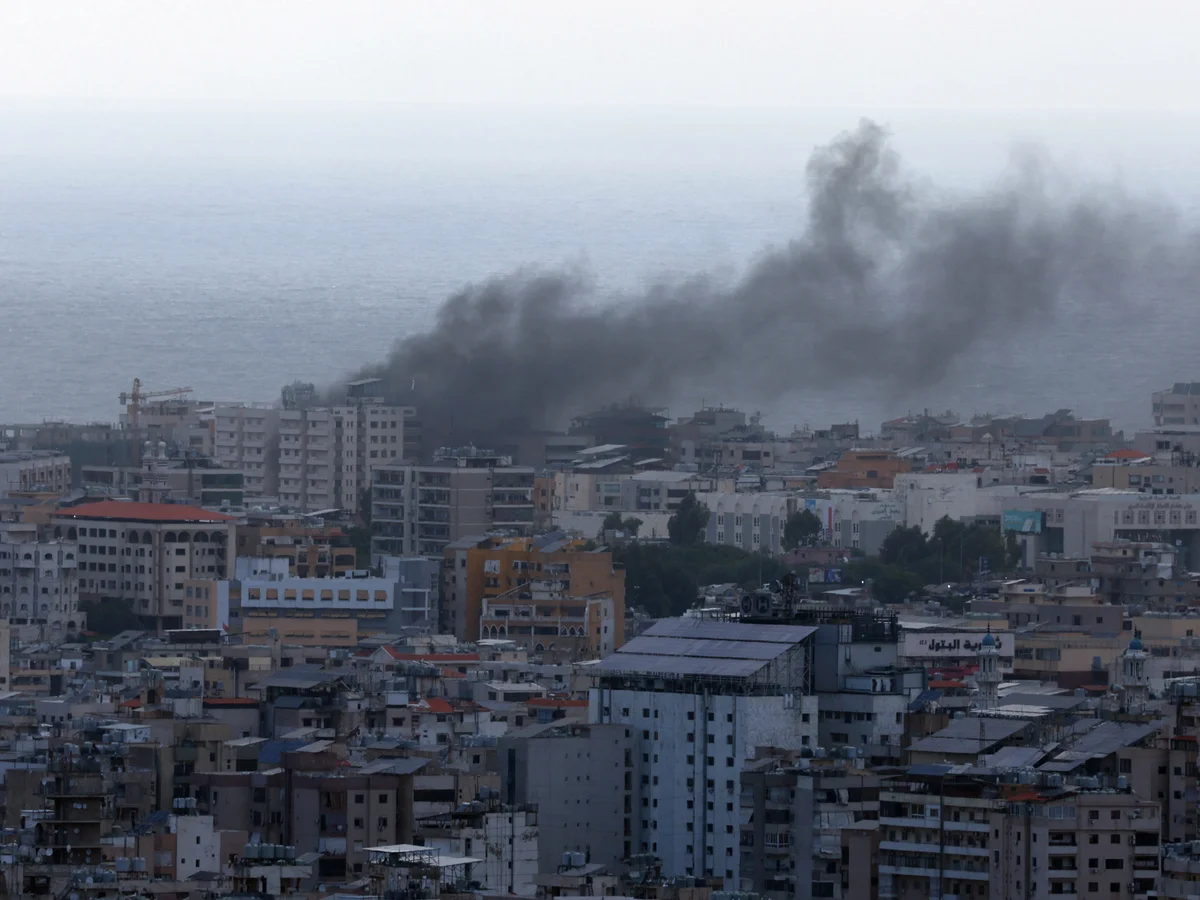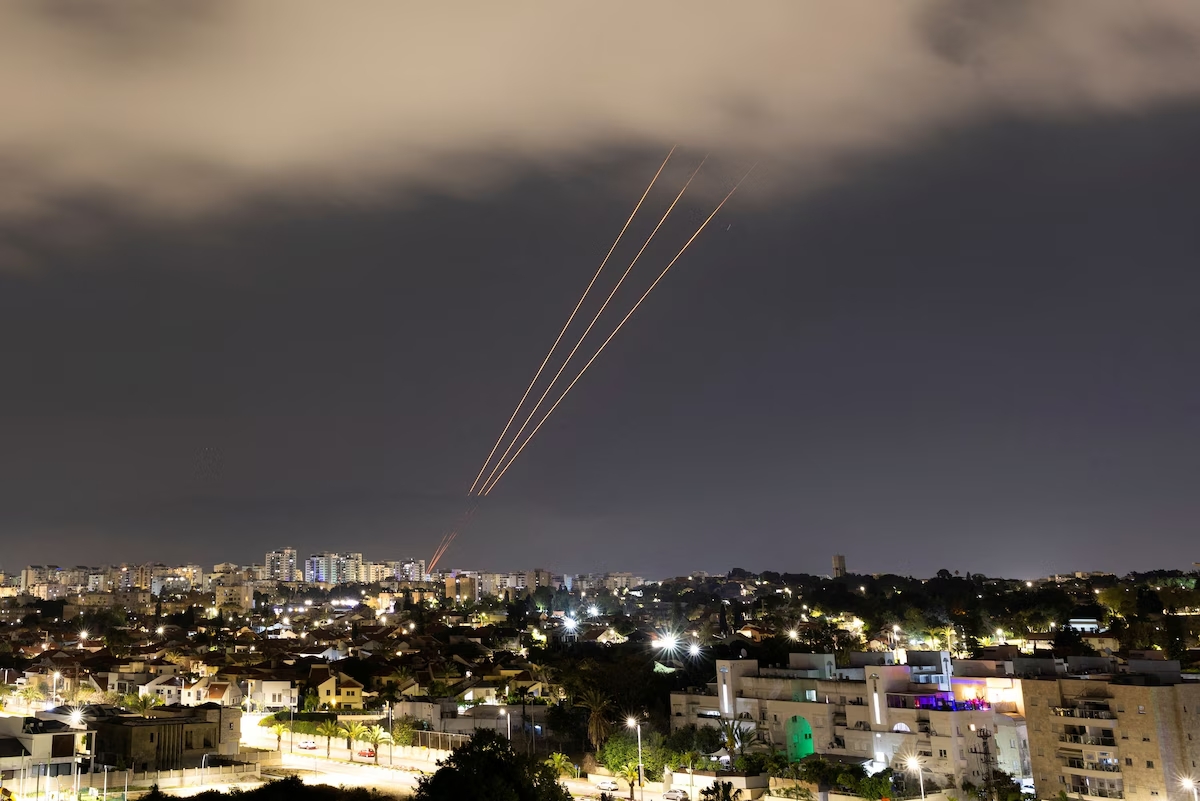On Tuesday, Iran launched a barrage of ballistic missiles at Israel in retaliation for Israel’s ongoing military actions against Tehran’s Hezbollah allies in Lebanon. In response, Israel promised a “painful response” to this aggression.
Alarms echoed throughout Israel, and explosions were reported in both Jerusalem and the Jordan River Valley as residents sought refuge in bomb shelters. During live broadcasts, reporters on state television were seen lying flat on the ground.
According to Israeli officials, over 180 missiles were fired into Israel from Iran, prompting the activation of Israeli air defenses to intercept the incoming projectiles.
A U.S. defense official informed Reuters that U.S. Navy warships assisted in intercepting some of the missiles aimed at Israel. Subsequently, the Israeli military announced an all-clear, allowing residents to exit their shelters.
The Islamic Revolutionary Guards Corps of Iran claimed to have launched numerous missiles targeting Israel, warning that any retaliation from Israel would be met with a “more crushing and ruinous” response. Iranian state news agency reported that the attack was directed at three Israeli military bases.
Israeli military spokesman Daniel Hagari stated that the attack would have consequences, a sentiment echoed by Israel’s U.N. Ambassador Danny Danon. “As we have previously made clear to the international community, any enemy that attacks Israel should expect a painful response,” Danon emphasized in a statement.
Israeli media reported that the military would continue to conduct “powerful strikes” throughout the Middle East on Tuesday night in light of the Iranian attack.
Meanwhile, Israeli Prime Minister Benjamin Netanyahu and several other ministers convened in a bunker near Jerusalem for a meeting of the security cabinet, according to two Israeli officials.
In Beirut, Israeli airstrikes resulted in the death of the commander of the Imam Hussein division, a group associated with Hezbollah based in Syria, as stated by Israel’s military.
Hagari reported that there were no known injuries from the Iranian missile attacks, but the Palestinian civil defense authority in the Israeli-occupied West Bank confirmed that a man was killed near Jericho, and debris from the rockets caused damage and ignited fires in the vicinity.
A senior Iranian official disclosed to Reuters that the order to launch missiles at Israel was issued by the country’s Supreme Leader, Ayatollah Ali Khamenei, who remains in a secure location.
Following the news of the missile strikes, oil prices surged by 5%, heightening concerns of a broader conflict between the two longstanding adversaries.

Middle East Crisis
In April, Iran had previously fired missiles at Israel for the first time, which were intercepted with the aid of the U.S. military and its allies. Israel responded at that time with airstrikes in Iran, yet a larger escalation was avoided.
Iran had vowed to retaliate after Israeli strikes killed key leaders of Hezbollah in Lebanon, including the group’s leader, Hassan Nasrallah, who is a significant figure in Iran’s regional network of fighters.
Hamas, the Iran-backed militant organization in Gaza, praised the missile strikes, claiming they avenged the Israeli assassinations of three militant leaders, including Nasrallah.
In Washington, President Joe Biden stated that the United States was ready to assist Israel in defending itself against Iranian missile attacks.
“We discussed how the United States is prepared to help Israel defend against these attacks and protect American personnel in the region,” Biden mentioned on X following a meeting with Vice President Kamala Harris and the White House national security team.
U.N. Secretary-General Antonio Guterres condemned what he characterized as “escalation after escalation” following the missile launches and asserted, “This must stop. We absolutely need a ceasefire.”
In a post on X, Israel criticized Guterres for failing to hold “Iran responsible for firing 181 ballistic missiles at 10 million Israeli civilians.”
Israel reported that its troops had conducted limited ground raids into Lebanon, marking the first time in 18 years that Israeli soldiers had engaged Hezbollah directly.
A ground campaign in Lebanon would represent a significant regional escalation, given that Hezbollah is regarded as Iran’s most well-armed proxy in the Middle East.
Over a thousand Lebanese have lost their lives, and approximately one million have been displaced due to intense Israeli airstrikes in recent weeks.
In the latest reported incident involving the assassination of a senior Hezbollah figure, Israel stated that it had killed a commander named Muhammad Jaafar Qasir, who was allegedly responsible for overseeing weapons transfers from Iran and its affiliates.
Along the Mediterranean coast near Sidon, mourners wept over the coffins of those killed in the Israeli strikes.
One resident, Abdulhamid Ramadan, recounted his harrowing experience, saying, “The building got struck down and I couldn’t protect my daughter or anyone else. Thank God, my son and I got out, but I lost my daughter and wife; I lost my home. What do you want me to say? My whole life changed in a second.”











































